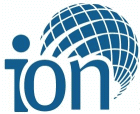 This year's Sloan Consortium (Sloan-C) Annual Conference on Online Learning provided great opportunities not only to learn from practicing instructional designers and online faculty members, but also to network with a number of support service providers. The Illinois Online Network (ION), led by program coordinator Scott B. Johnson, was one of the service providers participating in the event.
This year's Sloan Consortium (Sloan-C) Annual Conference on Online Learning provided great opportunities not only to learn from practicing instructional designers and online faculty members, but also to network with a number of support service providers. The Illinois Online Network (ION), led by program coordinator Scott B. Johnson, was one of the service providers participating in the event.
ION's mission, as stated on the website, is "to promote the effective use of networked information technologies, to enhance traditional classroom instruction, and to build the foundation for developing, delivering, and supporting online education throughout the world." In addition to providing an openly available online collection of educational resources (e.g. case studies, articles, tutorials, and activities) the network is also working directly with institutional partners and individual educators to provide a variety of faculty development opportunities.
Following a brief conversation between Sloan-C sessions, Johnson was nice enough to donate his time after the conference to answer a few questions about ION services. His background in instructional design and technology, as well as teaching in various higher education environments, is a great fit for his current role. Johnson joined the team in 2008, after years of working with online faculty at multiple institutions where he encouraged and supported their participation in ION's online teacher certificate programs. I asked Johnson to provide us with additional information about ION's current services and an update on what we can expect in the near future.
From your perspective as a provider of support and faculty development services, what are the primary concerns facing online learning today?
What I saw 3 1/2 years ago, as I interviewed with many different schools, and what I have seen every week since then, is resistance and a looming paradigm shift. A continuing challenge is overcoming the foundational resistance, from faculty and sometimes administrators, to accepting online programming as a legitimate contributor to fulfilling the academic mission. Admittedly, the online diploma mills and a few of the for-profits have contributed to a widespread perception that online learning is often convenient, so it must be of no value. Taking this challenge to the next step is effectively integrating the online tools and programs with the mainstream elements of any institution. This is part of the impetus for the creation of our new Certified Online Learning Administrator (COLA) program.
How is ION poised to meet these challenges and support the efforts of others moving forward with online courses and programs?
 So far, I would say that ION is poised to meet these challenges because the University of Illinois, through the leadership in the University of Illinois Online, sees promoting and strengthening all of online learning as a mutually beneficial task. (Think "tides raising all ships.") ION was created to develop faculty wherever they are and we have done that very effectively. There are nearly 600 master online teacher certificate holders currently spread across the globe and ION has reached nearly 9000 participants with our various Making the Virtual Classroom a Reality (MVCR) classes. Economic forces being what they are, we provide a very cost-effective, scalable, responsive faculty development strategic partnership for institutions that can't afford to provide the kind of broad-spectrum faculty development that ION already has in place. I think some of ION's most effective partnerships are with small or growing universities and programs that don't have the depth they need right now, but may one day have in place on their own.
So far, I would say that ION is poised to meet these challenges because the University of Illinois, through the leadership in the University of Illinois Online, sees promoting and strengthening all of online learning as a mutually beneficial task. (Think "tides raising all ships.") ION was created to develop faculty wherever they are and we have done that very effectively. There are nearly 600 master online teacher certificate holders currently spread across the globe and ION has reached nearly 9000 participants with our various Making the Virtual Classroom a Reality (MVCR) classes. Economic forces being what they are, we provide a very cost-effective, scalable, responsive faculty development strategic partnership for institutions that can't afford to provide the kind of broad-spectrum faculty development that ION already has in place. I think some of ION's most effective partnerships are with small or growing universities and programs that don't have the depth they need right now, but may one day have in place on their own.
Which of ION's current resources and services are the most popular?
Aside from the MVCR online training courses and the Master Online Teacher (MOT) certificate, a few of the pages on the ION site are very popular. Our tips for online success page is linked to by countless other institutions and our Quality Online Course Initiative (QOCI) rubric, a free, open resource, provides the foundation for exploring and examining the basic design and implementation of an online course.
What enhancements or improvements can you tell us about that are on the horizon for ION?
First, there is the Certified Online Learning Administrator (COLA) program that we've just launched; I expect to award the first of them this winter. Further, we have a few new MVCR courses in development. In the next six months I expect to launch the new Sims, Labs, Games, and Virtual Reality class and also a new course focusing on accessibility and universal design principles. We are also working on a certificate focusing on the unique and specific needs of K-12 educators teaching wholly or partially online.
Explore ION!
Sloan-C was not my first encounter with ION. As a graduate student, I referred to these resources often for information and inspiration regarding online instructional strategies. If you are interested in finding out more about the Illinois Online Network, review their website for details about available resources and programs. You can also follow ION on Twitter, like them on Facebook, and circle them on their new Google+ page.
Many of these resources are available because of the contributions of online instructors. Do you have suggestions for webinar topics? Or first hand stories of using mobile technologies in teaching and learning? ION is looking for your input! Contact Scott Johnson through the social media accounts listed above, via email, or through their toll free line: 877-775-8345.